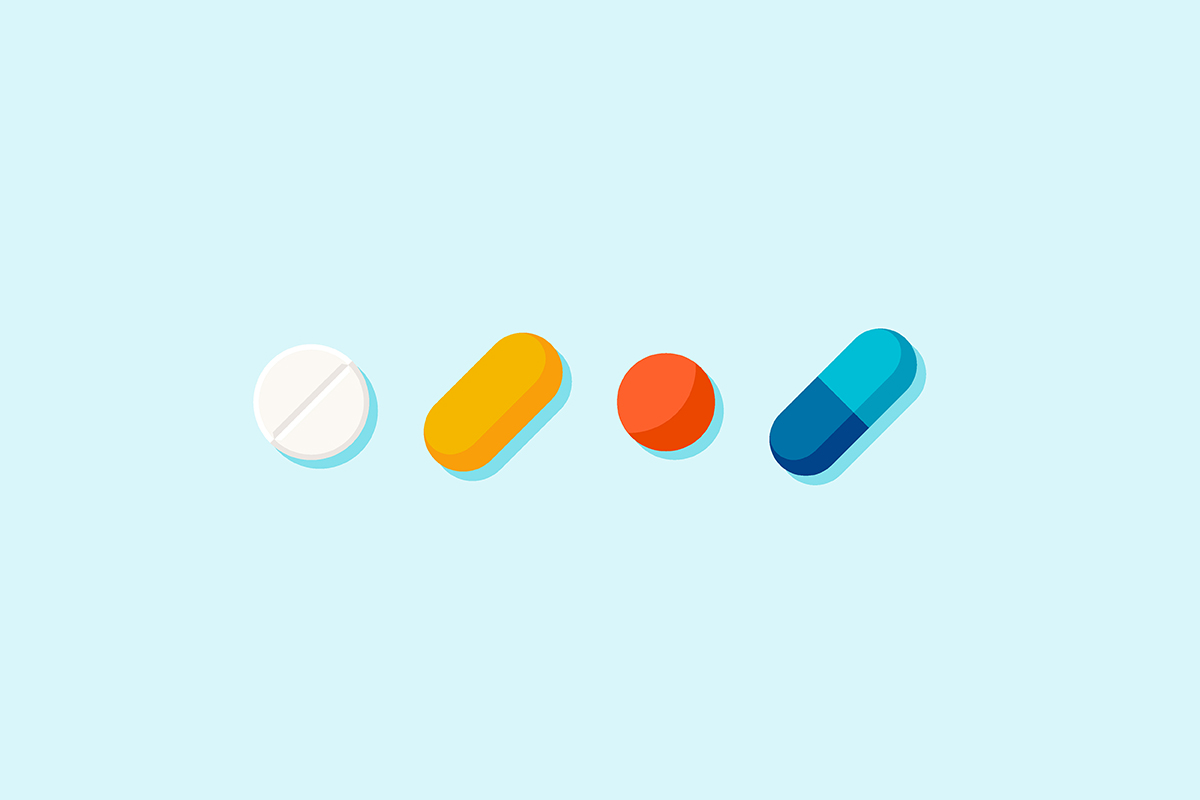
Get a free discount card from Optum Perks – accepted at pharmacies nationwide.

Here’s how to read your test results, and what they can tell you about your overall health.
The next time you go for your physical examination, your doctor may order blood tests. Needles aren’t fun, but the test results can tell you a lot about your health. For one thing, you’ll learn what your cholesterol levels are.
What is cholesterol, and why is it so important? It’s a waxy substance made by your liver that circulates through your blood.1 Your body needs some cholesterol to function. For example, it helps you make vitamin D (which is good for bone health) and substances you need to digest food.1,2
Cholesterol also helps in the creation of certain hormones, including sex hormones, says cardiologist Luigi Pacifico, DO. He’s an associate professor of medicine at the University of Massachusetts Chan Medical School in Worcester.
Your body makes all the cholesterol it needs for good health. But you also get cholesterol from foods like meat and dairy products. When you have too much LDL cholesterol (the “bad” kind) in your blood, it can cause problems. The cholesterol can stick to the walls of your arteries (blood vessels that carry blood away from your heart) and clog them.3 This raises your risk of issues such as heart disease, heart attack and stroke.4
That’s why getting your cholesterol levels checked regularly can be important. But what do the numbers on your test result mean? And what are healthy cholesterol levels? Find answers to these and other important questions below.

Get a free discount card from Optum Perks – accepted at pharmacies nationwide.
Let’s say you rolled up your sleeve and had some blood drawn at your doctor’s office. When your doctor sends you the test results, they’ll include:5
The combination of high levels of triglycerides with low HDL cholesterol or high LDL cholesterol levels can increase your risk for heart attack and stroke.6
The numbers below are generally considered normal for most adults, according to government guidelines.7 They are measured in milligrams per deciliter (mg/dL). Aim for:7
Total cholesterol: 200 mg/dL or less
LDL cholesterol: 100 mg/dL or less
HDL cholesterol: 40 mg/dL or higher for men (or those assigned male at birth) and 50 mg/dL or higher for women (or those assigned female at birth)
Triglycerides: Less than 150 mg/dL
But there’s not one number that every person should aim for. Your target numbers can vary, based on your health history, gender, how old you are, and other factors.
The numbers below are considered borderline high or high for most adults. Your doctor can help you understand what they mean for you.7
Total cholesterol: 200 mg/dL or higher
LDL cholesterol: 100 mg/dL or higher
Triglycerides:
HDL:
There are many factors that can increase your risk for, or cause unhealthy cholesterol levels.8 Some of them you can’t control. Others you can. The big factors include:
When and how often you need to get your cholesterol checked has everything to do with your age. Here’s how it breaks down:9
If you have other health risk factors, you may need to be screened more often. Your doctor might want to check your cholesterol more often if:
If you’re not sure when you last got your cholesterol checked, ask your doctor. They can look in your records and make sure you’re up to date.
Your doctor may offer some tips on how to get it to a healthier level. They may first have you use a cardiovascular risk calculator. That’s a tool, available online, that can help determine if you may need to take medication to lower your cholesterol.10
If your risk level for developing heart disease in the next 10 years is high, your doctor may recommend that you start taking medication.11 These could be statins or fibrates to lower your LDLs.12
Some risk factors you can’t control, like your age or family history. But others you can by making some lifestyle changes, such as:13
Before you make any changes to your eating habits or exercise, be sure to talk with your doctor.
Bottom line: Knowing your cholesterol numbers is important. They can help your doctor figure out the right plan to keep you healthy. Whatever plan they choose for you, be patient. “It takes three to four months for your cholesterol numbers to change,” says Dr. Pacifico. “So be prepared for a recheck.”
You can save up to 80% on your medications with free coupons from Optum Perks. Look up your medications now.
Sources
© 2024 Optum, Inc. All rights reserved. Do not reproduce, transmit or modify any information or content on this website in any form or by any means without the express written permission of Optum.
The information featured in this site is general in nature. The site provides health information designed to complement your personal health management. It does not provide medical advice or health services and is not meant to replace professional advice or imply coverage of specific clinical services or products. The inclusion of links to other web sites does not imply any endorsement of the material on such websites.
Stock photo. Posed by model.